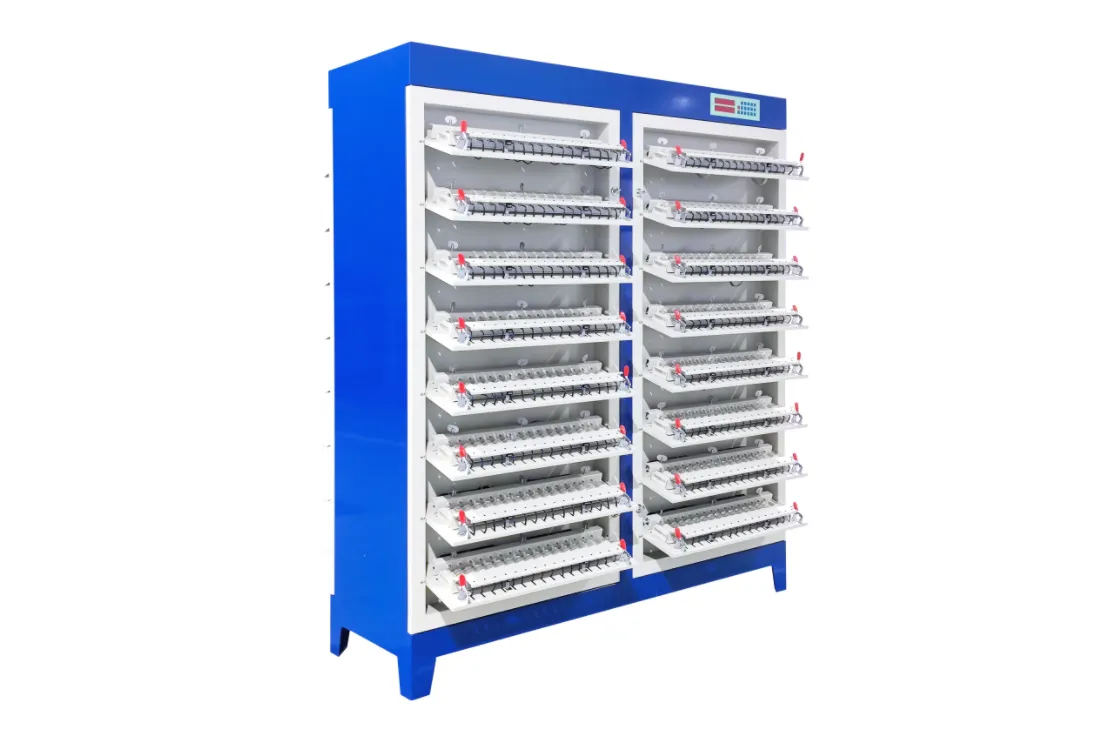1. What is a 512 - Stage Cylindrical Lithium - Ion Battery Sorting Machine?
A 512 - stage cylindrical lithium - ion battery sorting machine is a highly specialized and advanced piece of equipment in the battery manufacturing and recycling industries. As the name suggests, it is designed specifically for cylindrical lithium - ion batteries. The "512 - stage" indicates that this machine can classify batteries into 512 different categories based on specific parameters.

2. Working Principle
Parameter Measurement
The machine first measures a series of key parameters of each cylindrical lithium - ion battery. These parameters typically include battery voltage, internal resistance, capacity, and self - discharge rate. High - precision sensors are used to ensure accurate and reliable measurement results. For example, voltage sensors can measure the battery's voltage with high accuracy, and internal resistance measurement circuits can quickly and precisely determine the internal resistance value.
Classification Process
After measuring the parameters, the sorting machine uses a pre - set algorithm to compare the measured values with the classification criteria. Based on these comparisons, the batteries are sorted into one of the 512 pre - defined categories. This fine - grained classification allows for a more detailed and accurate grouping of batteries, which is crucial for different applications.
3. Applications
Battery Manufacturing
In the battery manufacturing process, the 512 - stage sorting machine plays a vital role in quality control. By sorting batteries according to their performance parameters, manufacturers can ensure that only batteries with similar characteristics are assembled into battery packs. This helps to improve the overall performance and consistency of the battery packs, reducing the risk of over - charging or over - discharging of individual batteries and extending the lifespan of the battery packs. For example, in electric vehicle battery production, well - sorted battery packs can provide more stable power output and better range performance.
Battery Recycling
For the battery recycling industry, this sorting machine is equally important. It can separate used cylindrical lithium - ion batteries into different grades based on their remaining performance. Batteries with relatively good performance can be refurbished and reused in less demanding applications, such as energy storage systems for small - scale renewable energy projects. Batteries with lower performance can be further processed for material recovery, extracting valuable metals like lithium, cobalt, and nickel.
4. Advantages
High Precision Sorting
The ability to classify batteries into 512 different stages offers extremely high sorting precision. This allows for a more accurate matching of batteries in battery packs, which in turn enhances the overall performance and safety of the battery systems.
Efficiency
The machine is designed to handle a large number of batteries in a relatively short period. With automated feeding, measurement, and sorting processes, it can significantly improve the production efficiency in both manufacturing and recycling operations.
Data Collection and Analysis
Many 512 - stage cylindrical lithium - ion battery sorting machines are equipped with data collection and analysis systems. These systems can record the measurement data of each battery, which can be used for quality control analysis, production process optimization, and research and development purposes.
In conclusion, the 512 - stage cylindrical lithium - ion battery sorting machine is an essential and advanced device in the battery industry, providing high - precision sorting solutions for both manufacturing and recycling processes, and contributing to the sustainable development of the lithium - ion battery field.



